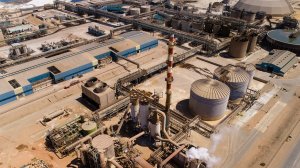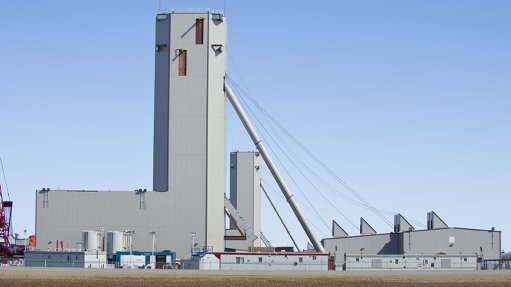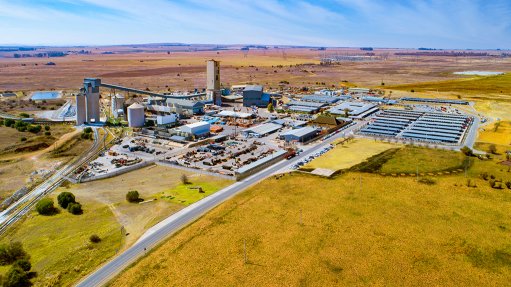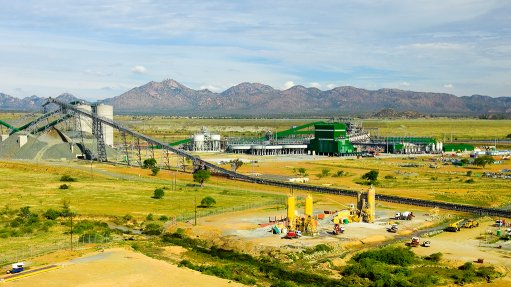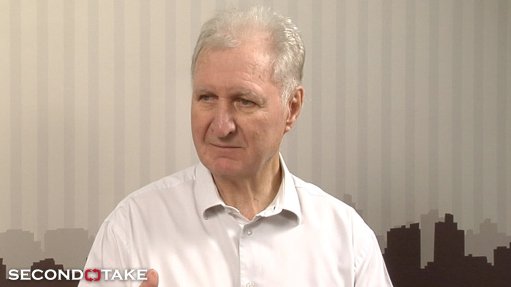Unique refinery concept enters first phase

The International Zink Association African Desk spokesperson Simon Norton discusses the concept of a new zinc smelter with ultra-low power consumption and a novel smelting process in South Africa.
Global industry body the International Zinc Association (IZA) Africa desk spokesperson Simon Norton says the first phase of its “bold plan” to implement South Africa’s own zinc refinery has started.
This includes raising the much-needed funding for the research phase, he stresses.
“We have started with the research stage of the project, in conjunction with the Minerals to Metals Initiative, and the University of Cape Town’s (UCT’s) hydrometallurgy research group. The research project will be led by UCT Department of Chemical Engineering Associate Professor Jochen Petersen, with support from Tibsen Technology founder Dr Allan Nesbitt,” Norton tells Mining Weekly.
The research will be twofold – firstly, exploring unique and novel ways of refining zinc and, secondly, working towards a “zero power” refinery, consequently ensuring ultra-low power consumption.
It is hoped that the bespoke mini refinery will use less energy, generate significantly fewer stack gas emissions and repurpose by-products more effectively than any other zinc refinery that is currently operational globally.
“The drive to a green or circular economy has led to the idea that the refinery must use every opportunity to reuse and recycle where possible,” says Norton.
He points out that the development of a new zinc refinery will be instrumental in boosting South Africa’s zinc manufacturing sector.
“South Africa currently does not have a functioning zinc refinery, leaving a sizable gap in the market, and driving manufacturers to import processed zinc at a huge cost in foreign exchange and with a direct impact on our balance of payments.”
Think Zinc
Norton explains that, once all the research has been finalised and the project enters the pilot plant phase, numerous initiatives will be undertaken, the first of which is designing the mini zinc refinery, with a capacity to smelt 40 000 t/y of special high-grade (SHG) zinc. Most of this will be consumed by South African galvanisers of steel wire, steel sheet and structural steel.
Simultaneously, work will start on developing a “zero power” refinery. All options will be explored, including photovoltaic solar power and novel battery power for the refinery plant modules.
In implementing novel zinc refining technology, the research and development will do away with existing pyrometallurgical processes or thermal smelting technologies, while incorporating new novel processes for refining zinc ore concentrate.
“Importantly, the pilot project will consider an ecologically sound operation, and not just for now – the new refinery must have the capacity to stay ahead of the ‘green wave’,” Norton stresses.
Location, Location, Location
Norton says the IZA Africa Desk is proposing that the refinery be based in the Saldana Bay Industrial Development Zone (IDZ), owing to its close proximity to rail infrastructure, the ease of access to raw materials from zinc mines in the Northern Cape and the sound government in the Western Cape province.
“Additionally, the manufacturing and galvanising businesses located in and around the Saldanha Bay IDZ include those that use substantial tonnages of refined SHG zinc –around 20 000 t/y,” he comments.
Notably, the research and pilot plant work will use ore from diversified miner Orion Minerals’ Prieska operation, and zinc miner Vedanta Resources’ Gamsberg mine, both in the Northern Cape.
Norton stresses that South Africa has the capacity and know-how to supply processed zinc to Africa and could, in the long term, produce upwards of more than 100 000 t/y of zinc again.
Comments
Announcements
What's On
Subscribe to improve your user experience...
Option 1 (equivalent of R125 a month):
Receive a weekly copy of Creamer Media's Engineering News & Mining Weekly magazine
(print copy for those in South Africa and e-magazine for those outside of South Africa)
Receive daily email newsletters
Access to full search results
Access archive of magazine back copies
Access to Projects in Progress
Access to ONE Research Report of your choice in PDF format
Option 2 (equivalent of R375 a month):
All benefits from Option 1
PLUS
Access to Creamer Media's Research Channel Africa for ALL Research Reports, in PDF format, on various industrial and mining sectors
including Electricity; Water; Energy Transition; Hydrogen; Roads, Rail and Ports; Coal; Gold; Platinum; Battery Metals; etc.
Already a subscriber?
Forgotten your password?
Receive weekly copy of Creamer Media's Engineering News & Mining Weekly magazine (print copy for those in South Africa and e-magazine for those outside of South Africa)
➕
Recieve daily email newsletters
➕
Access to full search results
➕
Access archive of magazine back copies
➕
Access to Projects in Progress
➕
Access to ONE Research Report of your choice in PDF format
RESEARCH CHANNEL AFRICA
R4500 (equivalent of R375 a month)
SUBSCRIBEAll benefits from Option 1
➕
Access to Creamer Media's Research Channel Africa for ALL Research Reports on various industrial and mining sectors, in PDF format, including on:
Electricity
➕
Water
➕
Energy Transition
➕
Hydrogen
➕
Roads, Rail and Ports
➕
Coal
➕
Gold
➕
Platinum
➕
Battery Metals
➕
etc.
Receive all benefits from Option 1 or Option 2 delivered to numerous people at your company
➕
Multiple User names and Passwords for simultaneous log-ins
➕
Intranet integration access to all in your organisation


